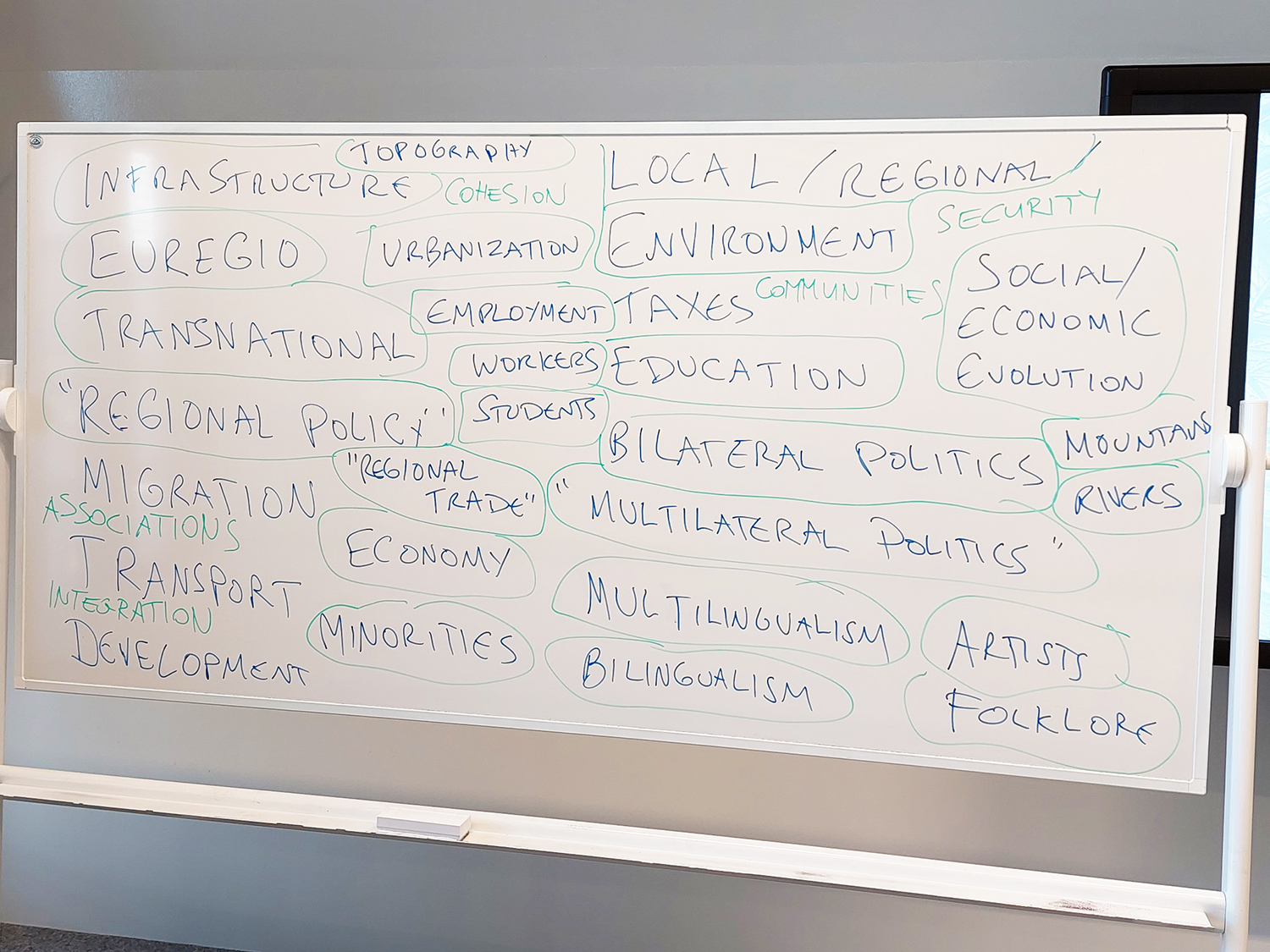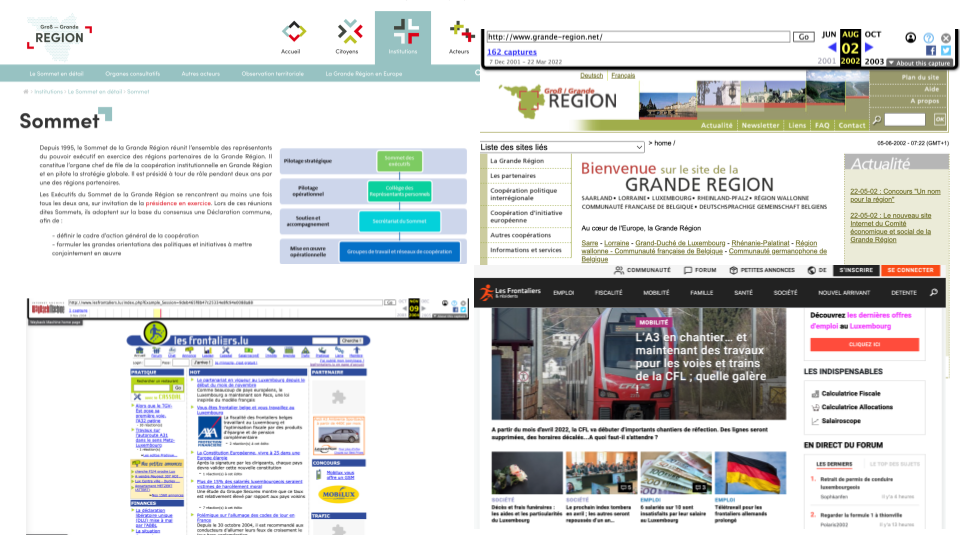Working on the history of cross-border cooperation in the Great Region implies consulting a multitude of archives in several countries and in different languages. The difficulty lies, in addition, in the lack of visibility of such cooperation within archival collections, often catalogued under more general categories such as “international relations” or “economy”. This workshop, organised by Machteld Venken, Christoph Brüll and Estelle Bunout aimed at bringing together practitioners of preservation and researchers to exchange on their respective understanding of what this field encompasses.
The participants represented the diversity of the potential sources that could feed research on the history of cross-border cooperation, with guests from the Historical Archives of the European Union, the Literaturarchiv Saar-Lor-Lux-Elsass, the Historical Archives of the European Parliament, the National Archives of Luxembourg, the Archives of the city of Differdange, the Archives du Service Public Fédéral Affaires étrangères of Belgium, the Belgian State Archives in Eupen, and the organisation “les Frontaliers Grand Est”.

Based on their experience producing a guide for the digital archival collections of Eastern European Dissidence (COURAGE (“Cultural Opposition – Understanding the CultuRal HeritAGE of Dissent in the Former Socialist Countries”), guests experts Jessie Labov from the Central European University (CEU) and Tamás Scheibner from the Eötvös Loránd University of Budapest (ELTE) guided the participants through an exercise. Starting with pointers on what cross-border cooperation covers, including political, cultural and economical fields, participants experimented with different ways to transpose theoretical definitions into an ontology. The exercise aimed at reflecting on how to increase visibility to relevant archival material about the history of cross-border cooperation.
Kerstin Arnold from the portal ‘Archives Portal Europe’ guided the participants through the process of aggregating catalogues of archival collections across Europe and making them searchable. This portal worked on implementing tools to help navigate multilingual collections, with the help of entity and topic mapping.
The ultimate goal of this workshop is to start a dialogue between archivists, historians and digital humanists and lay the foundation of a consortium dedicated to the identification and aggregation of archives on cross-border cooperation in the Greater Region and beyond.






